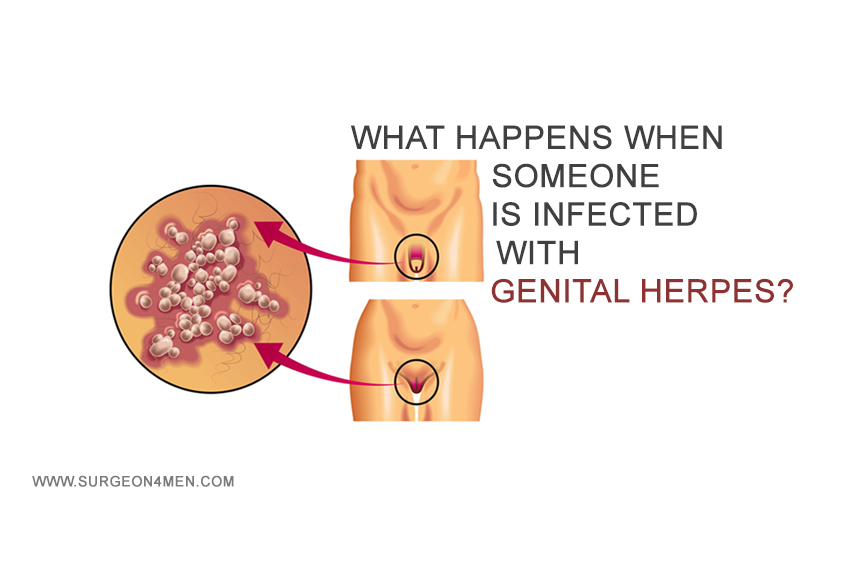What happens when someone is infected with genital herpes?
Genital herpes is a common sexually transmitted disease that is spread by the herpes simplex virus (HSV). There are two types of herpes simplex virus that can spread genital herpes. These are HSV-1 and HSV-2. Most people who suffer from genital herpes have mild symptoms. However, some people can exhibit very painful symptoms. Genital herpes is very common and it is estimated that in the United States alone, one in every 6 people between the ages of 14 to 49 years have genital herpes.
The herpes simplex virus tends to enter the body through small cracks in the skin or through the mucous membranes of the mouth, rectum, vagina, urethra, and the foreskin. Not all people who are infected might experience an outbreak.
Transmission of Genital Herpes
Any person who is sexually active is prone to getting genital herpes. Genital herpes is typically passed on either during or immediately after an outbreak. The herpes simplex virus is passed on during:
 Sexual contact involving vaginal or anal sex and by sharing of sex toys.
Sexual contact involving vaginal or anal sex and by sharing of sex toys.- Skin to skin contact while having close genital contact — even without having penetrative sex.
- Skin to skin contact if the virus is in an active mode outside the area protected by a condom or a latex or polyurethane square.
- Oral sex with a person who has a cold sore or is likely to have one.
- A pregnant woman can also pass on the virus to her baby if she is having an outbreak at the time of child birth.
Symptoms of Genital Herpes Infection
A vast majority of the people who have genital herpes are not aware of their infection. However, some people get symptoms of the infection within 4-5 days of coming in contact with the virus. Most of the other people do not exhibit any symptoms of the infection for months or years all together. The symptoms exhibited by a person suffering from genital herpes typically follow a pattern. Some of these symptoms include:
- The person feels unwell and exhibits flu-like symptoms such as tiredness, fever, headache, aches and pains in the legs, lower back and groin, and swollen glands.
- These symptoms are followed by a tingling, stinging, and itching sensation in the genital or anal area.
- This is followed by the appearance of small, fluidic blisters in the genital or anal area, thighs, and on the buttocks. These blisters typically burst within a day or two leaving behind small, reddish sores which can be extremely painful.
- The person also experiences pain while urinating. This is caused by the flow of urine over the sores.
The person might experience recurrent outbreaks but the symptoms of the recurrent outbreaks are normally less severe than the first one.
Diagnosis of Genital Herpes
You can only be certain if you have been infected by the herpes simplex virus if you get yourself tested when you have got the symptoms of the infection. You might exhibit symptoms of genital herpes even if your partner (from whom you have got the infection) has never had an outbreak. Doctors typically diagnose genital herpes by looking at the affected skin. They might also collect a swab of the fluid from the affected area and send it to the laboratories for further evaluation.
References
• http://www.fpa.org.uk/sites/default/files/genital-herpes-information-and-advice.pdf

